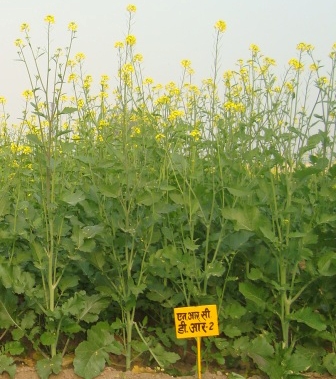In the current year, India faced unprecedented climatic extremes, including heat waves, cold waves, cyclones, heavy rainfall, floods and landslides, and periods of deficient rainfall in one or other parts of the country. Other countries of South Asia were equally affected. The frequency and intensity of such events have increased and are projected to increase further due to climate change. These climatic changes have also led to an unusual increase in insect-pest activities in recent years. A severe desert locust attack on crops in north-western India was reported in 2020, triggered by climate extremes in Africa, damaging cumin, rapeseed, and mustard in Rajasthan and Gujarat. Similarly, fall armyworm affected maize crops in about 2 lakh ha in Karnataka, western Maharashtra and Gujarat, and eastern states in 2018 and 2019. These climate-related production losses, along with the pandemic, global and regional conflicts, and inflation, have resulted in increased volatility in agricultural systems affecting the food, nutrition, and livelihood security of poor people in the country. Considering that India needs to produce much more food to meet the demand associated with the rising population and income, such volatility is worrisome and warrants quick, proactive action.
Fortunately, there have been considerable developments in agriculture technology in recent times. We now have varieties with much higher yield potential and technologies such as zero tillage machines, micro-irrigation, and precision fertilizers to increase resource use efficiency. However, the adoption rate of most of these technologies is low. The absence of practical evidence in real-world situations in the context of climate change also complicates the case because of its varied impact at different locations. There is an urgent need to contextualize these innovations to local socioeconomic conditions, which vary widely in our country.
A Climate-Smart Village (CSV) approach has been recently developed to address these gaps. The process generates evidence of synergies and trade-offs between different interventions in terms of productivity, adaptation, and mitigation at the field and village scale. The lessons learned regarding suitable technology options, climate information services, and institutional and financial mechanisms are then scaled horizontally to other villages. BISA has evaluated this approach in hundreds of villages in Haryana, Punjab, Madhya Pradesh, Bihar, and Maharashtra with promising results. In these CSVs, thousands of farmers have directly benefitted from a wide range of weather-resilient agricultural technologies and services such as conservation agriculture, crop insurance, weather and agro-advisory services, improved seeds, and solar pumps. The CSV approach also ensured that these farmers benefitted from several government schemes and subsidies that directly or indirectly promoted production, income, or resilience growth. Recent advances in digital agriculture, including ICTs, satellite-based vegetation indexes, localized insurance solutions, and machine learning, are expected to facilitate rapid diffusion of the CSV approach. These experiences have also attracted private sector players to make investments in CSVs. ITC company of India, for example, has taken several steps to strengthen resilience to combat its agribusiness supply chain’s vulnerability to increasing climatic risks. ITC managers adopted the CSV approach, merged it with their ongoing programs, and transferred it to several of the company’s sites which helped increase the yield and income of the farmers. In the last five years, the ITC has reached over 2 lakh farmers and plans to scale out the CSV approach all over India. Most state governments have prepared State Action Plans covering different sectors, including agriculture. They should internalize such successful experiences of CSVs in these plans and allocate finances for their scaling to strengthen the climate resilience of Indian agriculture.
Dr. Arun Kumar Joshi is MD, BISA. Pramod Kumar Aggarwal is Regional Program leader, BISA

